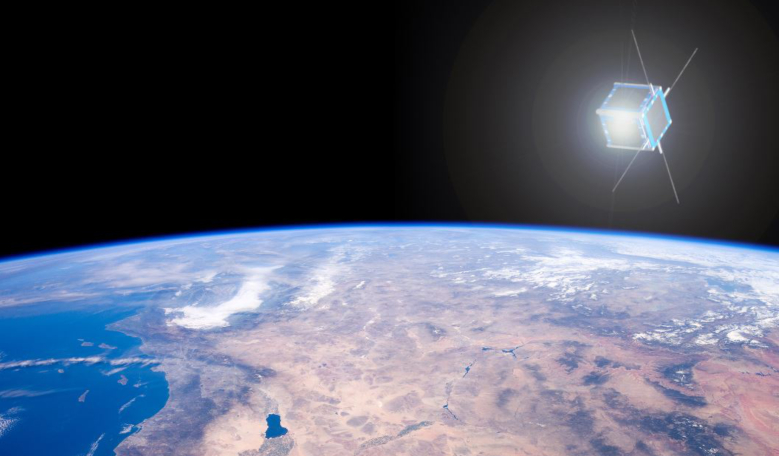Canadian startup Geometric Energy Corp. (GEC) says it has plans to blast a small satellite into space that will allow advertising to be displayed on a pixelated screen on the side of a spacecraft.
Rather than being visible from the ground, once in orbit, a high-tech selfie-stick attached to the side of the CubeSat will film the display screen.
This footage will be livestreamed on YouTube or Twitch – a live-streaming platform for gamers – so anyone on the ground can watch the satellite's screen.
“There might be companies which want to depict their logo… or it might end up being a bit more personal and artistic,” Samuel Reid, CEO and co-founder of the company, told Business Insider. “Maybe Coca-Cola and Pepsi will fight over their logo and reclaim over each other.”
GEC, who say on their website that their ultimate ambition is to contribute to the creation of a multiplanetary civilisation, is set to deliver 12 x 6U CubeSats to low-Earth orbit on a SpaceX Falcon 9 rocket rideshare in June 2022; it is anticipated that the advertising cube will be part of this payload.
CubeSats are built to standard dimensions (Units or “U”) of 10 cm x 10 cm x 10 cm. They can be 1U, 2U, 3U, or 6U in size, and typically weigh less than 1.33 kg (3 lbs) per U.
If the advertising screen is part of the June rideshare, it would suggest that the display area will measure around 0.36 square metres.
GEC say anyone will be able to buy pixels on the space billboard by purchasing tokens in cryptocurrency.
The tokens, which come in five options, Beta, Rho, Gamma, Kappa and XI, will respectively allow the would-be-advertiser to place a pixel on the screen, determine its brightness and colour and how long it will be displayed.
"I'm trying to achieve something that can democratize access to space and allow for decentralised participation," Reid said. "Hopefully, people don't waste money on something inappropriate, insulting or offensive."
The news of advertising in space has not gone down well on social media, with many taking to Twitter to show their distaste for the idea. "No. I draw the line here,” game programmer and reporter Matthew Chapman tweeted.
Light pollution from mega satellite constellations and artificial objects in space is already a big concern and many are worried that GEC’s CubeSat will be the start of many more advertising billboards in space.
Although SpaceX will not play a direct role in the mission and at this stage is solely the launch provider, Elon Musk’s participation in the project has also been criticised. However it appears the billionaire has yet to officially comment on the partnership with GEC.











